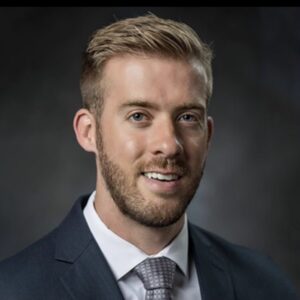Trevor Bixler, Ph.D., serves as Vice President, Clinical Services for Northpoint Recovery and Imagine by Northpoint. A licensed psychologist with a background in a variety of research and clinical settings, Dr. Bixler oversees the clinical work performed across Northpoint and Imagine by Northpoint facilities.
Dr. Bixler was kind enough to take time out of his schedule to sit down with us for the following interview.
A large part of your background involves work with the Boys Town organization. Can you talk about its importance to you and your career, including its emphasis on “dignity of care”?

The motto of Boys Town, which dates back to the 1940s, is “He ain’t heavy, he’s my brother.” It’s about believing there’s no problem too big to share and solve. (It also happens to be a great Donny Hathaway song.) What I’ve kept with me from my experience with Boys Town is that they’re focused on deinstitutionalizing their care program. I don’t view people as inherently ill—there’s a lack of skill development. The support comes in giving people the opportunity to practice these skills.
You have to see people as more than just a diagnosis for them to get better. Everyone needs to feel as if they are seen as a person capable of growth. I don’t ever feel that I have all the answers as a clinical “expert.” I am only there to share space with someone and provide a framework for someone to live within their own value set.
Do you get to treat and provide any therapy clients in your current position? If not, do you miss it at all?
I miss being in the therapy room for clients. However, I really like getting to see others do it now for Northpoint and Imagine by Northpoint. I don’t directly treat clients any longer, but instead I help shape the system within which our therapies are provided.
What strategies do you and your staff employ to build partnerships with community organizations and resources? Can you give me an example?
We’ve grown very quickly over the past couple of years, and we’ve relied on a lot of talented individuals. Part of my job is in finding ways to let that emerge through community partnerships.
We want community partners to understand what we do and how to get to us if they need us. So, with that in mind, we like to host educational events that showcase our clinical skillsets. We also like to present at community resource events, such as events hosted by state and local educational agencies to help school systems understand how to get to our Imagine programs.
In a previous conversation, you mentioned the work you’re doing to build an evidence-based System of Care across all Northpoint and Imagine by Northpoint locations. Can you expand on this at all?
The System of Care being built within the entire Northpoint system is designed to help the client be successful in care. In so many systems, clients are not set up to succeed in their own care. This has been shown time and time again in the research on patient health outcomes. Even when people are able to access care, logistically and financially, there is often this disconnect.
Our System of Care is an evidence-based collection of strategies, principles, ethics, approaches, and programs which shape a system so that clients are empowered to take control of their own destiny. And, as far as efficiency, it’s designed so that all clinicians are clear on the scope and purpose of the care system, which in turn creates more predictability and less burnout.
We’re also working to limit our clinicians’ time behind a screen. We want them to do the work, not document it all day.
During that same conversation, you talked about the Northpoint philosophy of “healing through altruism.” Can you talk about what this is, and what a Northpoint client might expect in this area?
Healing through altruism is a therapeutic concept in which someone may take on acts of service for others and for their community to further their own therapeutic progress. It is a way to work collaboratively with a therapist to set healthy boundaries and guidelines around your giving, so that you can still focus on your own growth and not overexert yourself too early in the therapeutic process.
When our clients are ready, we often encourage them to give back. Most often, we don’t have to prompt this much, as most people find themselves “on fire” for their newfound recovery and want to shout about it from the rooftops. A big part our alumni structure is helping them find ways to channel their talents, their energy and gifts to the causes and relationships that make them feel good about themselves and their abilities.
Experience the Benefits and Joys of Treatment with Northpoint Recovery Today
Want to know more about how our compassionate, individualized addiction and mental health treatment? Want to know how we can help you or a loved one? Call Northpoint Recovery today at 888.296.8976 or contact us online. Our medical professionals, including Dr. Trevor Bixler, understand the benefits of professional help. We also know how to use those benefits to your advantage. Help us help you in your recovery journey today.




